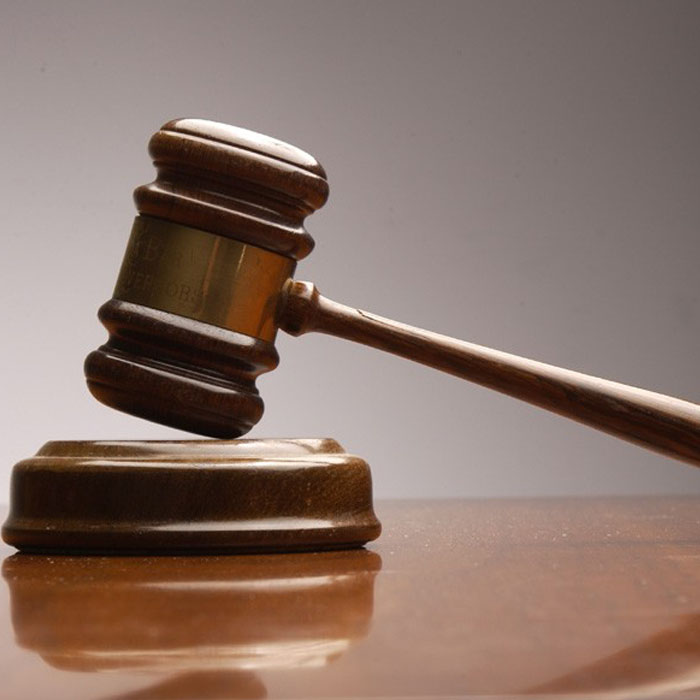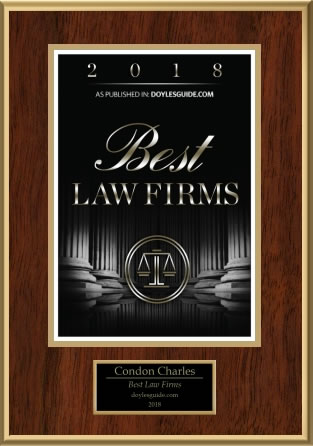Litigation
Providing exceptional service to the Toowoomba region in the area of litigation and dispute resolution requires a commercial focus, a deep understanding of the client’s true needs and objectives and a high level of efficiency and attention to detail.
Consistently meeting, and exceeding, these requirements is the goal of our Toowoomba commercial litigation practice.
Our Toowoomba litigation and dispute resolution services in this area include:
Our services in this area include:
- Commercial and contract disputes
- Debt recovery
- Shareholder & partnership disputes
- Family provision applications
- Building & construction disputes
- Planning & environment litigation
- Town planning & local government law advice
- Trade practices & competition law matters


Commercial litigation contacts:
Our other core practice areas include:
Queensland Litigation
Dispute resolution and litigation are the sorts of situations that no one likes to have to deal with. However, typically often what seems to be an everyday matter can turn into a nasty dispute which is difficult to mediate and resolve without going to court. Condon Charles Lawyers knows the difficulties people face when confronted with these awkward situations and work tirelessly with clients to ensure the best stress free solutions which may exclude the need to go to court.
Condon Charles dispute and litigation services in Toowoomba help clients with
- Shareholder & partnership disputes
- Planning & environment litigation
- Debt recovery
- Building & construction disputes
- Family provision applications
From mediation to the courts
If mediation has failed to resolve a dispute in Queensland, the Queensland Civil and Administrative Tribunal (QCAT) can handle some disputes. It is a tribunal and not a court but the decisions it has the power to make are final. It can deal with disputes involving disagreements between individuals, a business or a company, which are usually only valued at no more than $25,000. Anything over this amount is handled by the courts.
The Magistrate’s Court is the lowest level of the court system in Queensland. If the value of the dispute is calculated to be no more than $150,000, the Magistrates Court can deal with the dispute. Any amount over this is dealt with by the District or Supreme Court. The District Court can also hear appeals in relation to cases that the Magistrates Court have made a decision about. Any disputes heard in the District Court should not exceed $750,000.
Queensland’s highest court is the Supreme Court and it handles trials and the Court of Appeal. The trial division handles all civil matters which exceed $750,000. The Court of Appeal can hear Supreme Court and District Court appeals as well as appeals from the decisions made by a wide variety of other tribunals across Queensland.
Commencement of Proceedings
If you think it is necessary to initiate proceedings against a person due to a dispute that has taken place you should see one of our litigation lawyers at Condon Charles lawyers to discuss your case. The Limitation of Actions Act 1974 (Qld) has set a time limitation for actions taken in the state. It is therefore important to be prompt if you wish to file a dispute before the time limitation has expired.
Types of Litigation
1. Business litigation
Business disputes whether in relation to partnerships, company directorship or other types of businesses are commonplace but there are legal ways of handling and resolving these disputes.
There are certain things that will be taken into consideration when handling these types of disputes which are:
- If at all possible the dispute should be settled amicably.
- If this is not possible the next step to follow is whether the business can be separated allowing each party to follow his or her priorities.
- If this is not possible the next choice is if one of the parties can buy the other’s interests or the business can be sold and the money gained be divided equally between the parties.
- If these solutions are not practicable it will be necessary to impose a court application which will close the business or appoint independents to sell the business.
- Sometimes due to failure to co operate legal costs can be substantial. To avoid that occurring our lawyers at Condon Charles know all the issues well in relation to commercial interests and understand the need to solve any business disputes in a timely manner to avoid wasting time and money of our business clients.
Mediation is our first priority
The important feature of a business dispute is to try to use mediation and negotiation as this minimises costs and leaves the individuals the chance to wrap up their current business and get on with new opportunities. If court proceedings can be avoided all the better for everyone involved. A settlement deed needs to be drawn up and once that has been done the old business partners can go their own ways. If a business partner is suing you this sort of dispute can be resolved through using a settlement deed between the parties which shortens the time to resolve the matter.
2. Planning and Environment Litigation
The allocation of land for certain purposes and the appropriate handling of the state’s resources is a priority in Queensland so there is a variety of legislation to cover these matters. There is a specific mobile court called The Planning and Environment Court (P and E) in Queensland that hears matters in front of judges related to
- environmental protection
- marine parks
- vegetation management
- planning and development
- heritage
- nature conservation
- fisheries resources
- transport infrastructure
- coastal management and protection.
When attending a Planning and Environment Court legal representations is not compulsory for the individual even though the whole process runs far more smoothly if a lawyer who is experienced with environmental law represents you.
There is a variety of legislation that deals with the different types of environmental issues, so this affects the proceedings in the Planning and Environment Court. For example, under the 2009 Sustainable Planning Act proceedings that can be heard relate to:
- appeals filed against development applications decisions;
- applications for declarations;
- appeals about charges related to infrastructure;
- appeals against compensation claims decisions;
- appeals in relation to Development & Buildings Tribunals decisions;
- applications for orders to do with enforcement;
- contempt.
The Planning and Environment Court can sit anywhere throughout Queensland. Disputes may be heard and resolved at a place nearby to the dispute’s location and the affected community. Sittings of the court are held when necessary outside Brisbane, in localities, towns and regional cities and even in places where no courthouse is present as long as there is a judge available to hear the case.
Most disputes held in the Planning and Environment Court are either fully resolved or partly resolved through prior agreements reached before the final hearing takes place, which narrows down costly court time. Alternative Dispute Resolution (ADR) is actively encouraged by the court and does not attract any costs.
The P and E Court keeps a list of its active cases which it manages case by case through the use of directions hearings. The cases go through a pre trial preparation with directions orders presented by the appointed judge at the directions hearing.
3. Debt Recovery Litigation
If you are owed money and the person or organisation is refusing to pay you there is action you can take to help recover the debt. In this case you are the creditor and the person owing the money is called a debtor. Depending on the amount owed it is time and cost effective to hire one of our experienced debt collector lawyers at Charles Condon in Toowoomba who know the best ways to negotiate.
You can apply for a court order and use this as a way of putting pressure on your debtor to pay the debt. If this fails to have any effect enforcing the court order can be pursued. You should not delay in pursuing recovery of the debt as time limitations do apply and if you exceed the set time limits you may lose your chance of ever recovering the debt.
Step by step process in debt recovery
- First make contact with the debtor and request repayment
- Send a letter of demand to request repayment
- If after this action you have had no luck at recovering your owed money see a lawyer and pursue legal action.
If the money owed is less than $25,000 the Queensland Civil and Administrative Tribunal (QCAT) will handle the debt recovery. Otherwise, it goes to the District Court to be heard. The independent tribunal of the QCAT is relatively easy to access; it doesn’t take up too much time and is the least expensive of legal options.
Applying to a court
The Court that handles debt recovery is based on the amount that is owed to you. So, for example, the Magistrate Court will deal with your debt claim if it’s not more than $150,000 while the District Court handles more than that up to $750,000 and the Supreme Court more than $750,000.
Enforcement of a money court order
Once the tribunal or court has supported your request to get your debt recovered it will submit an order in to get the debt repaid. If this fails you will have to file an application to the court to get the order enforced. You cannot get your debtor sent to prison for failure to repay you.
The time limits for enforcing a court order are set at 6 years but can be extended to 12. You will need to talk with one of our lawyers if your debt is more than 6 years old.
4. Common types of building disputes
With the rapid increase in building projects in Queensland building disputes can and do often arise if you have hired an individual or a company to do some building work on your property. Disputes often occur if a job has not reached your expectations or the time and cost of a job was not firmly established before commencement of the work.
Main reasons for building disputes are
- Building work delays
- Poor quality of completed work
- Poorly designed plans and bad contracts
- Council approvals
- Trespassing
- Variations and inclusions
- Council approvals
- Payments for work
- Insufficient building practices knowledge.
It is always best to reach a private agreement over a building dispute. If this fails n, you can get the dispute heard and resolved by the Queensland Civil and Administrative Tribunal (QCAT).
There are limits to the QCAT ability to solve building disputes but they can hear disputes about
- a house building project;
- the repairs or improvements completed on a building including alteration, repair, renovation and extension;
- the quality of work carried out on electrical supply,, water supply, drainage or sewerage;
- the location, removal or demolition of a house or building;
- landscaping work and swimming pool construction, including work done on restraining walls and driveways;
- the preparing of specifications and plans;
- the inspection of the building once work has been completed.
Laws covering building disputes
There are various solved disputes that you and Charles Condon can examine to get an idea what path your dispute will follow.
If you can’t find any past disputes that are similar to your own situation, you can try looking at legislation that covers building disputes.
There are 3 Acts that are related to commercial and domestic building disputes which are the:
- Queensland Building and Construction Commission Act 1991
- Domestic Building Contracts Act 2000
- Queensland Civil and Administrative Tribunal Act 2009
The sorts of building complaints that are often resolved are to do with defective work, building design, non-completion of a building work due to liquidation, bankruptcy or death of the contracted company, inadequate termite inspections and pre-purchase surveys, damage done to your property due to a neighbour’s building work on their property.
Filing your complaint
Charles Condon’s lawyers can discuss your building dispute with you and help you file a complaint with the right documentation to avoid unnecessary delays. The sorts of documents you may have to provide include building work quotes, any signed contracts, proof of any payments made and the pre-purchase survey report.
5. Family provision applications and disputes
When a marriage ends there are many things that the ex-marriage partners or ex de-facto partners need to do to finally terminate their relationship. This includes:
- Spousal maintenance
- Parenting for any children
- Assets and estate division
Because many relationships do not end amicably disputes often occur over family provision especially as money is involved. The Family Court prefers that any disputes are reconciled through mediation but sometimes this is not possible especially if face to face communication is required.
Our lawyers at Charles Condon prefer to see mediation as the main method for resolving disputes but they can help to file court orders on your behalf and get them enforced if you feel you cannot do this part yourself. Once your family provision matters are settled you can make long term plans for your future and your family in the best way you can considering the circumstances you are in.
Parenting orders
The worst situation when family break-up takes place is how the children will handle the change in circumstances. No longer will the children have both parents present in the same building and the parents will have to make a decision as to who is to be the main parent. If a satisfactory decision cannot e reached it may be necessary to go to court for it to make a decision on your behalf taking into consideration the best interests of the children as a priority.
Setting aside the financial side of a broken relationship is the consideration given to the care of the children. If an agreement cannot be reached through a family dispute resolution a parenting order may be necessary to ensure children are appropriately cared for when a relationship ceases to exist. There are several people who may be involved in a parenting order including the child or children’s parents, who can include same-sex parents, the children’s grandparents and any other relatives who are concerned about a child’s welfare can file an application for a parenting order if it’s in the best interests of the child or children.
The Family Law Act 1975 outlines what the court must take into consideration when court orders are filed for children. There are two parts of the act that refer to parenting orders. One is section 65C which includes a description of who can file a parenting order application and the other is section 60B which offers a description of the factors that need to be considered when determining the best interests of the children certain factors that the court must consider when making orders about children.
You should look at the Act and in particular Section 60B which provides an explanation of what is considered to be the best interests of the children and Section 65 C which describes who is entitled to file an application for a parenting order. Case law is also used when establishing a parenting order and that is the decisions made by judges in other cases that are similar to yours.
Apart from the areas described above there are other areas of litigation that the lawyers at Condon Charles handle and these include
- Town planning & local government law advice
- Trade practices & competition law matters
- Commercial and contract disputes
Don’t hesitate to call us if you have any disputes you would like resolved as our experienced dispute resolution and litigation lawyers in Toowoomba have the experience and knowledge to advise and represent you.




